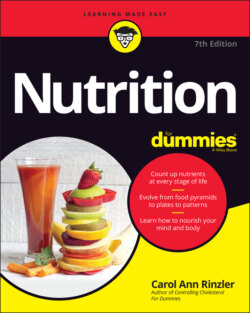Читать книгу Nutrition For Dummies - Carol Ann Rinzler - Страница 21
Questions to ask about any study
ОглавлениеYou open your morning newspaper or turn on the evening news and read or hear that a group of researchers at an impeccably prestigious scientific organization has published a study showing that yet another thing you’ve always taken for granted is hazardous to your health. So you throw out the offending food or drink or rearrange your daily routine to avoid the once-acceptable, now-dangerous food, beverage, or additive. And then what happens? Two weeks, two months, or two years down the road, a second, equally prestigious group of scientists publishes a study conclusively proving that the first group got it wrong.
Consider the saga of dietary fiber and colon cancer. In the early 1990s, based on a respectably large number of studies including a 1992 meta-analysis of 13 case-control efforts in nine different nations, all kinds of health experts urged everyone to increase his or her consumption of high-fiber foods to reduce the risk of colon cancer. Then in 1999, data from the long-running Nurses’ Health Study at the Harvard School of Public Health showed absolutely no difference in the risk of colon and rectal cancer between women who ate lots of high-fiber foods and those who didn’t.
Imagine the confusion. Imagine the number of boxes of high-fiber cereal tossed in favor of scrambled eggs, once considered a cholesterol risk, now regarded as perfectly healthful, for breakfast. Imagine the reaction to a report in the Journal of the National Cancer Institute two years later saying that while cereal high in dietary fiber may not be protective, people whose diets are low in fruit and vegetables have the greatest risk of colorectal cancer. What to do? Toss the cereal? Keep the banana?
Nobody seems to know. That leaves you, a layperson, on your own to come up with the answer. Never fear — you may not be a nutritionist, but that doesn’t mean you can’t ask five common-sense questions about any study to arrive at a sensible conclusion that says, “Yes, this may be true,” or “No, this may not be.”
